Covid-stricken Shanghai is down, but is it out?
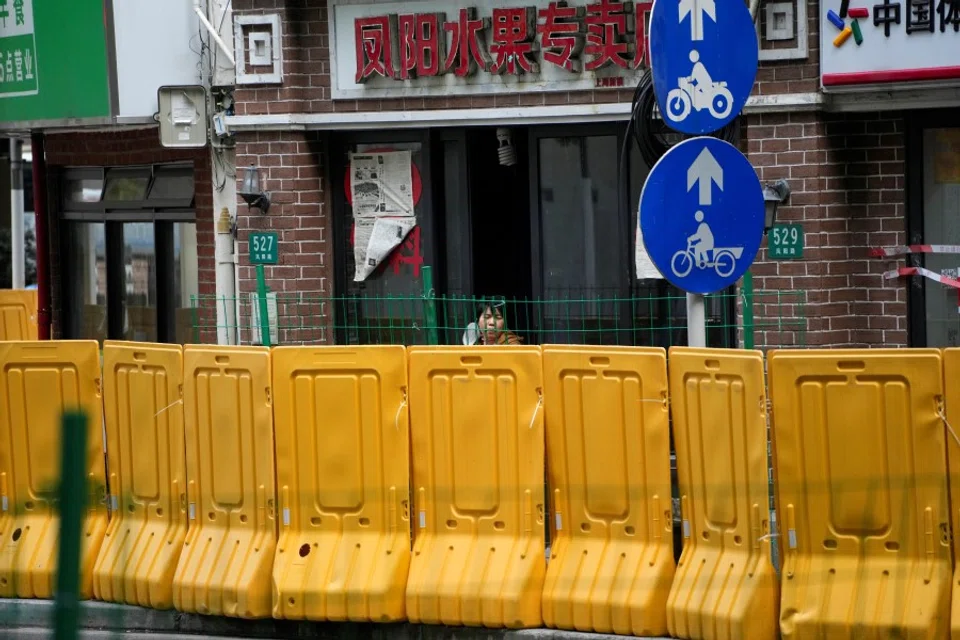
Singaporean businessman Roy Kee is undecided about flying to Shanghai. He is scheduled to attend a major trade fair for children and maternity products at the National Exhibition and Convention Center in July, but the venue is currently a makeshift hospital for Covid-19 patients.
Kee told Zaobao that preparations for the event should rightfully begin in June, with exhibitors arriving in Shanghai ahead of time to complete their quarantine. But with Shanghai still recording thousands of new cases a day, it is uncertain if the venue will be cleared and repurposed on time. There is no news of the trade fair being postponed, but some Singapore companies have already decided to pull out.
Just six months ago, Kee was in Shanghai for the China International Import Expo, where he got a good impression of the city. "When I returned to Singapore, I told my friends that Shanghai was doing a good job, " he said. "It was almost as if there wasn't even a pandemic. Who would have thought that the city would go into lockdown? There's still no sign of the measures lifting after a month, so who knows when things will return to normal."
Less than 1% of businesses reopen
Since Shanghai went into a full lockdown on 1 April, over 600,000 people have been infected in the current wave of Covid-19. Differentiated controls according to districts have been implemented since 11 April, and as of 14 May, 18 million out of 25 million people in Shanghai are living in controlled areas (防范区). These people can leave their residential compounds and carry out activities in limited areas.
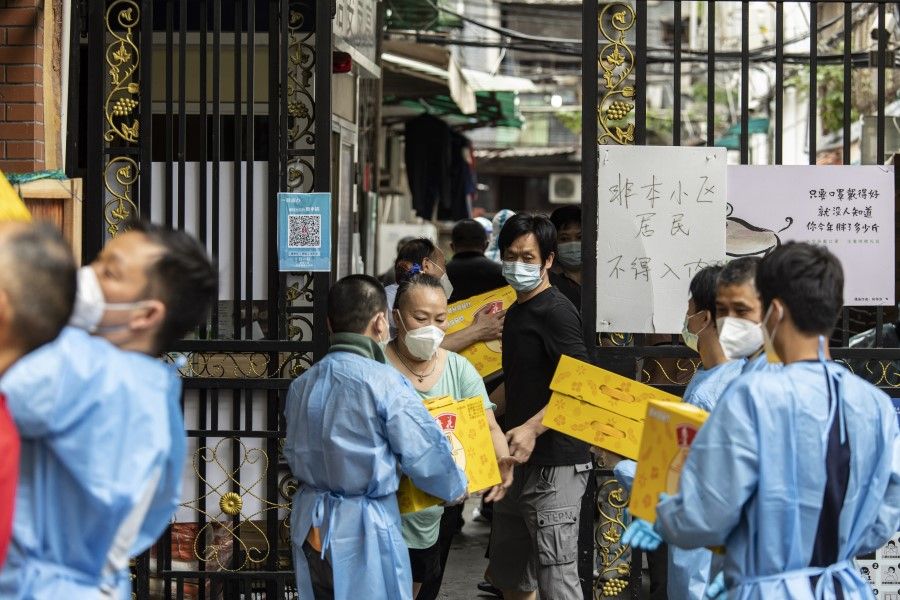
However, many residents of controlled areas are still stuck at home, and most stores and eateries in the city have not reopened. As such, the prospect of businesses resuming soon does not look good.
The Shanghai Municipal Commission of Economy and Informatization has released two whitelists of companies allowed to resume operations. The first, released on 11 April, listed 666 companies. The second, released on 30 April, had an additional 1,188 companies, making it a total of 1,854 companies that are allowed to resume operations in Shanghai.
While Shanghai is not the first area in China to go into lockdown, its economic weight and international reputation mean that global investors have higher expectations of the city.
Going by data from Shanghai's market regulatory authority which shows a total of 2.67 million companies in Shanghai at the end of 2021, less than 1% of businesses in Shanghai are back in operation.
It seems that the high transmissibility of the Omicron variant has brought about an unpredented challenge in Shanghai's zero-Covid efforts. The lifting of the lockdown on this megacity has been repeatedly pushed back, which has hurt its image as a major metropolis, and cast a pall over China's economic outlook.
Local government's passive reaction
While Shanghai is not the first area in China to go into lockdown, its economic weight and international reputation mean that global investors have higher expectations of the city.
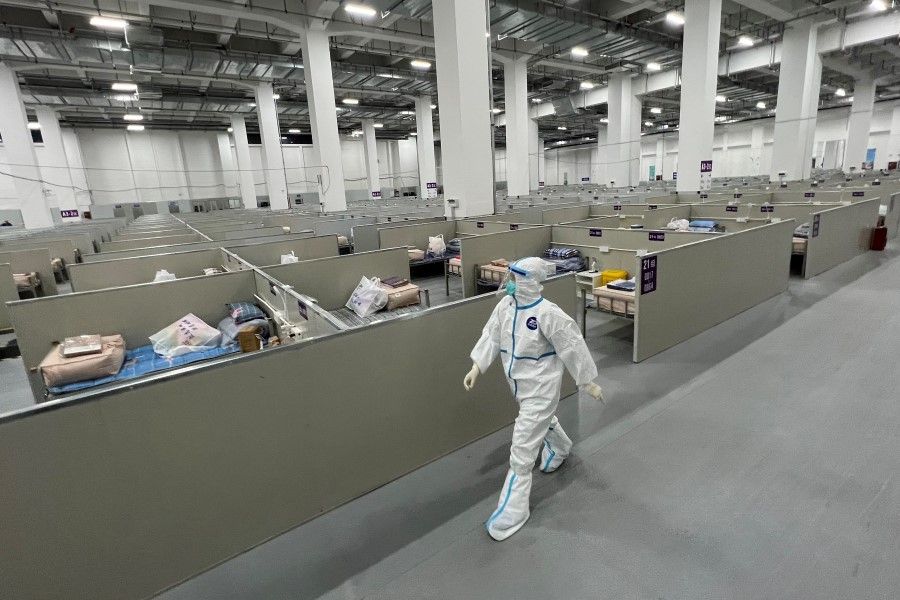
China's first pilot free trade zone was established in Shanghai, and the city was the first to have a negative list of foreign investments in China as a reform policy. In 2021, the number of foreign-funded companies in Shanghai increased to over 70,000, with actual use of foreign investment standing at over US$22.5 billion, the highest in China. There are more than 164,000 foreigners living in Shanghai, the highest number in any city in China. All these attributes paves the way for Shanghai to establish itself as a global city.
Over the two years of the pandemic, unlike other cities, Shanghai has implemented precise outbreak containment measures, and for a long time, it was able to control the pandemic while maintaining economic growth. But over the past couple of months, after wavering in the initial stages, a visit by Chinese Vice-Premier Sun Chunlan set Shanghai's anti-epidemic policy towards a traditional lockdown, disappointing observers who were hoping that Shanghai could experiment with a new model of pandemic control and lead China towards opening up.
An academic familiar with the situation in Shanghai told Zaobao that when Shanghai's cases started to spill over to other areas, the anti-epidemic policy was no longer about scientific considerations, but about the political needs of Beijing's national coordination (全国一盘棋, lit. the nation as one chess game).
"Optimistically, by the end of May, 70% of commuting, public transport and store operations in Shanghai should be restored, but there will still be strong restrictions on entering and exiting Shanghai." - Chinese academic and observer of situation in Shanghai
Unlike Hong Kong, which is geographically separated from mainland China, Shanghai is not free to decide on whether it wants a lockdown or not, which makes the decision for lockdown an especially passive one, and the decision to lift it a lot more carefully considered.
The academic explained, "The lifting of the lockdown in Shanghai depends on when the economic pressure reaches a critical level, and when surrounding provinces such as Jiangsu and Zhejiang feel that the outbreak in Shanghai no longer poses a spillover threat. Optimistically, by the end of May, 70% of commuting, public transport and store operations in Shanghai should be restored, but there will still be strong restrictions on entering and exiting Shanghai."
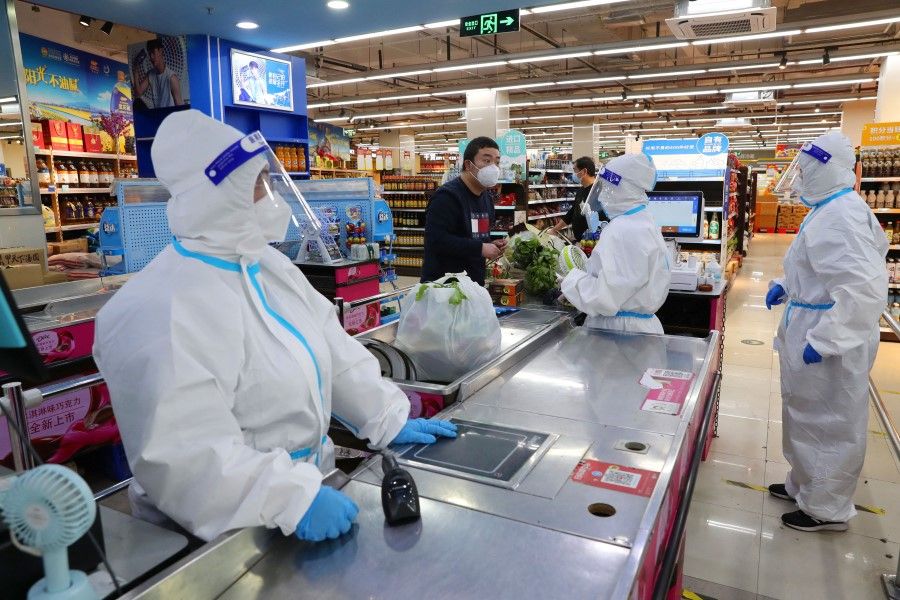
Aside from the seemingly unending lockdown, Shanghai residents have also voiced out about the difficulties in getting groceries and medical attention. The Shanghai government's shortcomings on the ground became apparent when e-commerce and delivery services were forced to halt operations. Some residential committees were found to have misappropriated daily supplies, while some grassroots workers were dismissed for shoddy anti-epidemic efforts.
An online poll conducted in mid-April by That's Shanghai showed that among 950 foreigners in Shanghai, 85% said that the current round of lockdowns has made them rethink their future in China, and 48% said that they will leave within the next year.
Meanwhile, some companies are starting to vote with their feet. On 18 April, global auto chip maker ON Semiconductor (Onsemi) announced that it would shut down operations at its Shanghai distribution centre due to the lockdowns and shift to Singapore.
Short-term decline in market confidence
Assistant Professor Lu Xi of the National University of Singapore's Lee Kuan Yew School of Public Policy said that not only has the market lost confidence in Shanghai, but it is also worried about the overall political environment in China. Over the past two years, the government has cracked down on the internet and education sectors, and investors feel that the risks are growing in the Chinese market, with the lockdown in Shanghai supporting this view.
Lu highlighted, "Even if the lockdown in Shanghai is lifted, it will be difficult to restore market confidence - policymakers may lift the lockdown today but implement it again tomorrow. It is a completely political process that does not need to be run by the market."
Nonetheless, some industry players have decided to stay in Shanghai. Several media outlets reported recently that electric vehicle giant Tesla plans to build a second production line in Shanghai to boost its capacity. Tesla, one of the first major companies allowed to resume production in Shanghai, resumed operations of its Gigafactory 3 in Lingang district on 19 April.
... in the short term, Shanghai might see an outflow of companies and talent, but in the long term, its advantage as China's bridge to the outside world will retain its attraction. - Tommy Xie, head of Greater China Research & Strategy at OCBC Bank
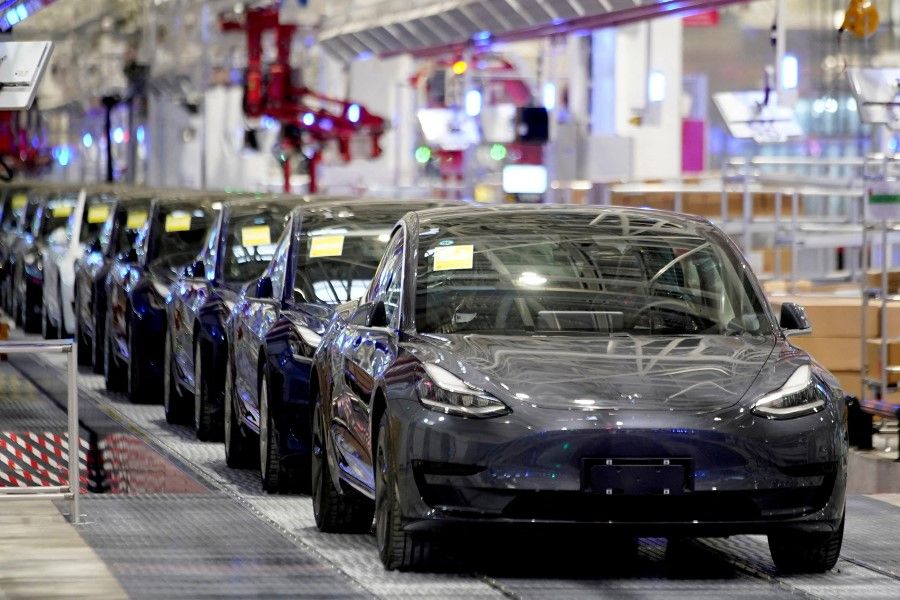
Tommy Xie, head of Greater China Research & Strategy at OCBC Bank, felt that in the short term, Shanghai might see an outflow of companies and talent, but in the long term, its advantage as China's bridge to the outside world will retain its attraction. He said, "Right now, the whole world is opening up, and Shanghai's lockdown against the trend has impacted those in the city. But over the past two years, other emerging markets have also gone through the shocks and bumps as the virus surges and ebbs. Companies will still make decisions based on long-term trends."
"Shanghai is running a fever and flu; give it some time and it will recover." - Singaporean businessman Roy Kee
Green Kulture - the company founded by Kee that focuses on environment-friendly cleaning solutions - has an office in Shanghai, which handles product imports and distribution. Kee said that commercial and logistics resources are concentrated in Shanghai, and the government is transparent and efficient, making it a "natural choice" to establish his company there. But the sudden lockdown has seriously affected product distribution, and the company has set up a new warehouse in Dongguan in Guangdong to transfer goods from Shanghai.
The lifting of Shanghai's lockdown is going slowly, and Kee plans to keep the warehouse in Dongguan as a backup, even if it means doubled costs. He said, "Shanghai is running a fever and flu; give it some time and it will recover. I am still confident about Shanghai. But now that I know it could fall sick, I have to be prepared."
PCR testing the new normal
Having stayed home for an entire month, 40-year-old Cheng Yuran (pseudonym), a company employee residing in Shanghai's Fengxian district, recently received an exit-entry pass valid for two weeks. The rules on the pass state that only one person from each household is allowed to leave the residence once a day for a maximum of four hours between 9 am and 6 pm.
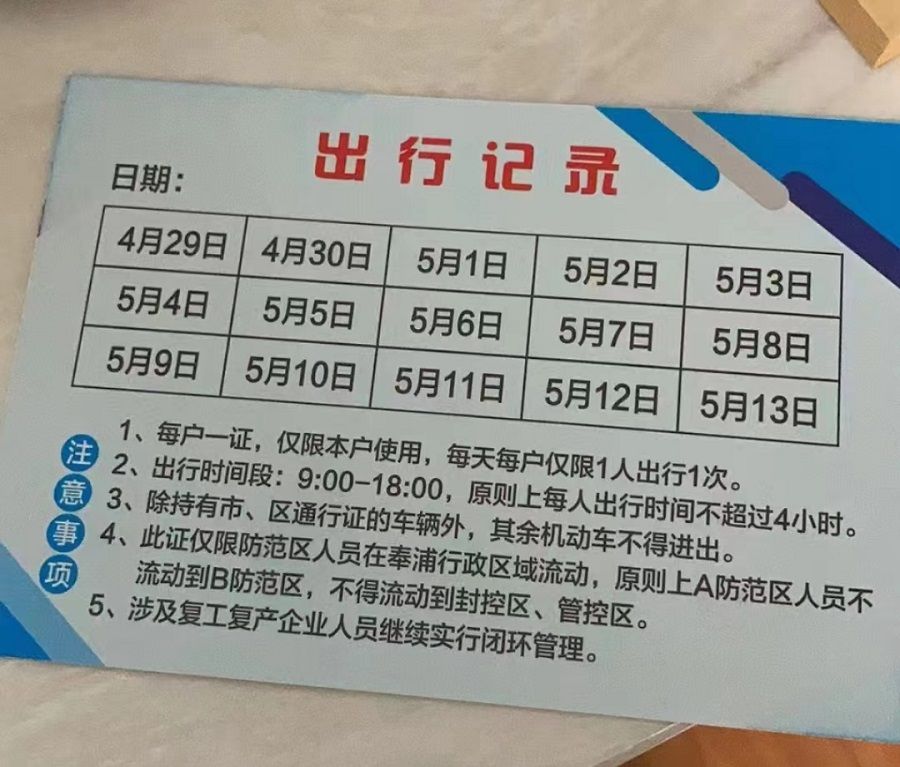
Cheng told Zaobao that while her residential community had not reported a new Covid-19 case over the past month, they were not allowed to leave their residence until Fengxian district announced that it had achieved "social zero Covid" (社会面清零, zero new cases in the community aside from those already in isolation or quarantine). Even then, although a travel range was not specified, people mostly stayed within 1.5 kilometres of their residence as the district's public transport has not resumed operations and residents are not allowed to drive.
On 17 May, Shanghai announced that all of its 16 districts have achieved social zero Covid. The announcement came five days after the city revealed its target timetable for lifting its lockdowns, declaring that it would try to achieve social zero Covid by the middle of May, when it would also open up in an orderly manner.
Earlier on, officials have said that if the daily increase of Covid-19 cases accounted for less than one in 100,000 of the total population of the district for three consecutive days, a limited number of residents are then allowed to participate in certain activities in a limited area.
While residents are allowed to visit supermarkets, pharmacies and hospitals within their designated area, their temperature, exit-entry passes, health codes and negative antigen rapid test (ART) or polymerase chain reaction (PCR) test results will be checked before they are allowed to enter these venues. With the social zero Covid announcement, it is hopeful that Shanghai would move into a new phase of easing its control.
As of 13 May, 9,900 permanent PCR testing sites have been set up in Shanghai, with over half of them in operation...
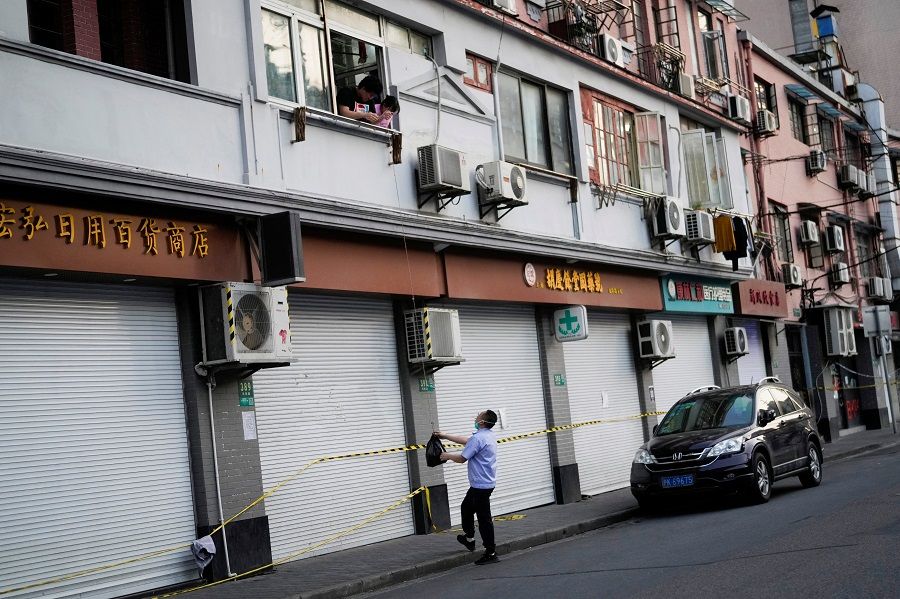
Three days after the lockdown on her residential compound was lifted, Cheng took a stroll outside. She found that most of the stores along the street were still shuttered, while the few shopping malls and food markets that were open had long lines of people waiting to get in. She said, "There were very few people outside and even fewer cars. It was so empty that it was quite worrying. I think it will take another month before the pre-pandemic bustle of the city will return."
The previous way of life has yet to be fully restored, but a new normal following the lockdown is gradually taking shape, with Shanghai recently normalising PCR testing. As of 13 May, 9,900 permanent PCR testing sites have been set up in Shanghai, with over half of them in operation and mainly serving essential workers and those who work at industries that have resumed production in Shanghai.
On 1 May at a press conference, Gu Honghui, deputy secretary-general of the Shanghai municipal government, said, "The city will enter the normalised Covid-19 prevention and control stage after all local districts achieve the primary goal [of social zero Covid]." While he did not elaborate further, it is generally believed that 48-hour PCR testing would become one of the normalised measures.
Recently, neighbouring city Hangzhou and the Chinese capital Beijing have also normalised PCR testing, requiring their residents to present negative test results to enter public venues or use public transport.
Shanghai's anti-epidemic measures a model to follow
Assistant Professor Lu predicts that other Chinese regions, apart from Guangdong where the political atmosphere is more relaxed, will follow Shanghai's normalised Covid-19 prevention measures to prevent the large-scale spread of the Omicron variant.
He explained, "In fact, Shanghai could have explored the viability of new anti-epidemic models such as home quarantine and multi-tiered diagnosis and treatment to drive China's gradual opening to the outside world. But now, it is a missed opportunity for Shanghai."
"What worries me the most is that another lockdown would be imposed as soon as new cases are reported." - Shanghai resident
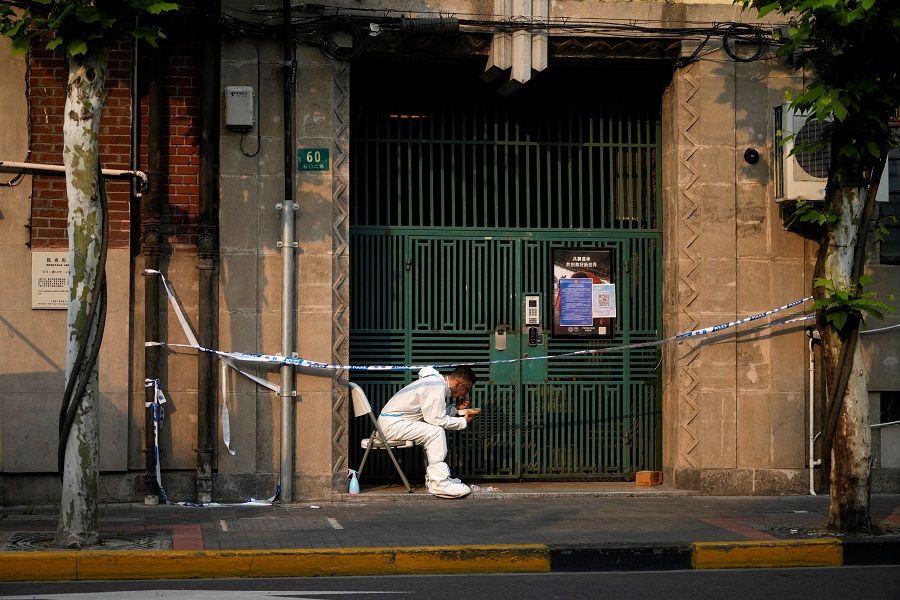
As most regions are normalising anti-epidemic measures, Xiamen in Fujian province has been testing a quarantine duration of ten days, shortened from 14 days, for inbound visitors since April. The city has also replaced some PCR tests with ART. Official documents circulating online state that other cities in the trial include Shanghai, Chengdu, Dalian, Ningbo and Qingdao. However, quoting people familiar with the matter, Bloomberg reported that the trials are aimed at reducing the costs of quarantines and do not represent a divergence from the country's zero-Covid policy.
Cheng Yuran finds that normalising PCR testing and limiting one's range of activity are acceptable measures as long as people can still go outside. She said, "There's a popular jingle that has recently emerged online: 'If you don't want a lockdown, then don't go crazy' (不想封,就别疯 [封]; playing on the homonyms 封 [lockdown, feng] and 疯 [crazy, feng]). What worries me the most is that another lockdown would be imposed as soon as new cases are reported."
Big blow to Chinese economy
In early May, prominent Chinese market analyst Hong Hao resigned from BOCOM International after his social media accounts were censored by the authorities. A month prior, Hong sounded numerous alarms about the Chinese economy, talking about the risks of capital flight and stock market crashes, as well as the growing economic impact of the country's zero-Covid policy. His predictions seemed to be reaffirmed over and over again, sending the market into a state of panic.
Recently, three of China's major stock market indexes collectively fell to their lowest points since 2020. Following this, the Politburo of the Chinese Communist Party signalled the easing of curbs on the property market and an end to its sweeping crackdown on the tech sector for the first time ever. But economists believe that unless there is a fundamental shift in the overall anti-epidemic policy, it will be difficult to turn the economy around this year.
... the majority of small- and medium-sized enterprises, which account for over 99% of the total number of enterprises in the city and employ over eight million people, are still shuttered...
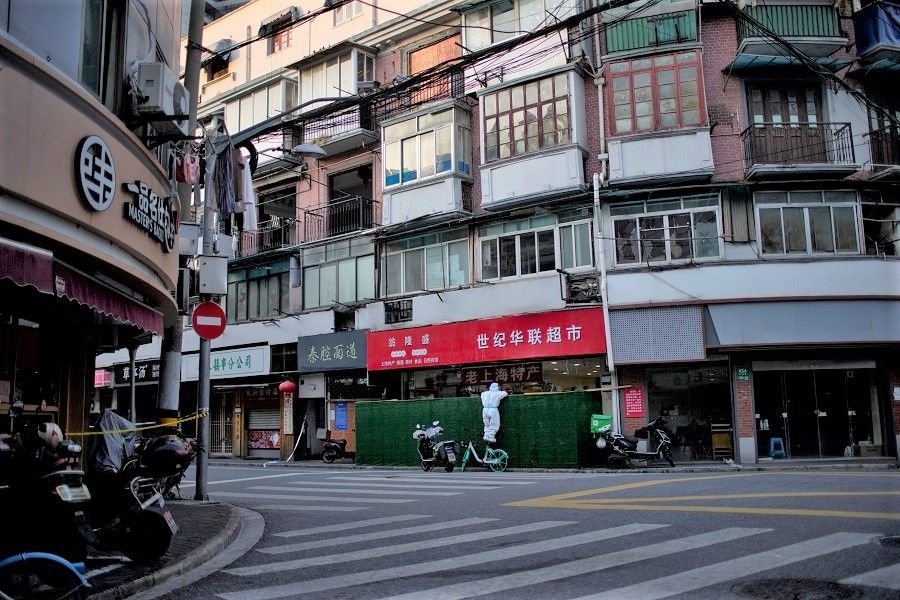
Official statistics show that 70% of the 1,854 major enterprises on the Shanghai authorities' major enterprises have resumed production. However, the majority of small- and medium-sized enterprises, which account for over 99% of the total number of enterprises in the city and employ over eight million people, are still shuttered as they are unable to meet the anti-epidemic requirements of closed-loop production, putting unprecedented pressure on Shanghai's employment situation.
The impact of Shanghai's lockdown on the Chinese economy is directly reflected in the Purchasing Managers' Index (PMI). According to data released on 30 April by China's National Bureau of Statistics, China's manufacturing PMI dropped by 2.1 percentage points to 47.4 in April, a new low in two years. The Caixin services PMI data released on 5 May also fell to 36.2 in April, the lowest since February 2020.
... the Chinese economy is now in the worst shape it has ever been, with market sentiment towards Chinese equities at its lowest, and popular discontent in China at its highest. - Shan Weijian, chairman and CEO of Hong Kong-based private equity firm PAG
Direct measures and transparency to boost the market
Analysts pointed out that stringent zero-Covid requirements will continue to delay the lifting of Shanghai's lockdown, trapping this economic powerhouse between a rock and a hard place. At the same time, regions such as Beijing and Zhengzhou that are entering a full or partial lockdown will also face the same predicament.
At a meeting with stockbrokers last month, Shan Weijian, chairman and CEO of Hong Kong-based private equity firm PAG, criticised the "draconian" zero-Covid policy that has "semi-paralysed" the Chinese economy. Without mincing his words, he said that compared with 30 years ago, the Chinese economy is now in the worst shape it has ever been, with market sentiment towards Chinese equities at its lowest, and popular discontent in China at its highest.
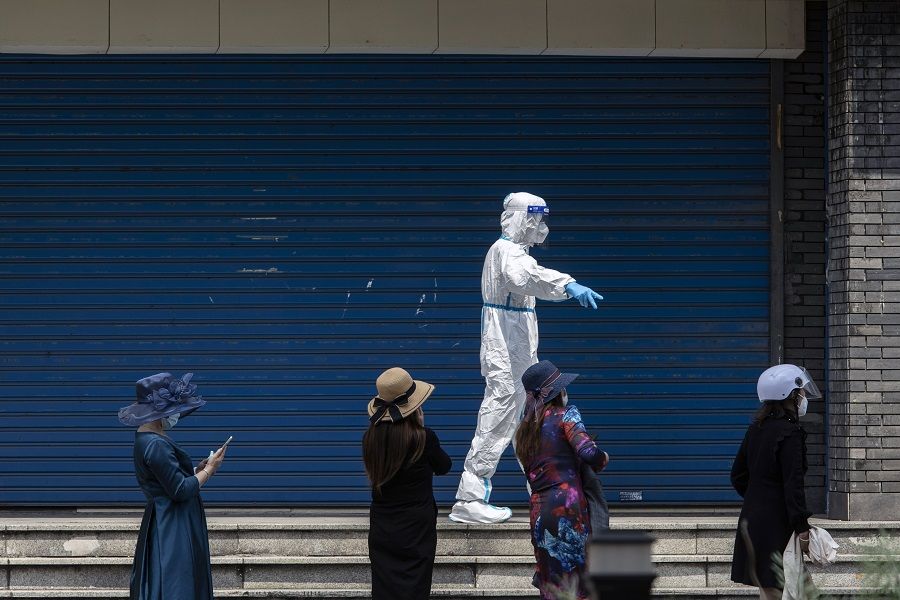
OCBC Bank's Xie told Zaobao that Shanghai is financially stronger than most other Chinese regions, and that the government can stimulate the economy in more direct ways such as by issuing consumption vouchers. But based on the current situation, officials are still stuck in the traditional "bottom-line thinking" to bail out needy groups via tax cuts and easing loan restrictions. It would be worth observing what Shanghai will do next to drive economic recovery.
Xie recounted that the pandemic lockdown in Wuhan two years ago also dealt a big blow to market confidence. He said, "Similarly, investors are also panicking now because of the uncertainties ahead. But this uncertainty does not lie in the coronavirus but in anti-epidemic policies instead. The market does not know if there would be another lockdown or more changes to policies. The government could perhaps be more transparent in these areas."
Related: Best of both worlds: China wants both zero-Covid and economic growth | Pandemic in China: Will Beijing repeat Shanghai's mistakes? | Singaporeans in Shanghai: How to cope when a city shuts down during the pandemic | Shanghai's Covid shutdown is disrupting domestic and global supply chains | Can Shanghai meet its zero-Covid deadline and resume production? | Why is China obsessed with zero-Covid?
